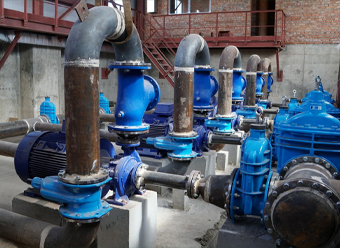English
- Afrikaans
- Albanian
- Amharic
- Arabic
- Armenian
- Azerbaijani
- Basque
- Belarusian
- Bengali
- Bosnian
- Bulgarian
- Catalan
- Cebuano
- Corsican
- Croatian
- Czech
- Danish
- Dutch
- English
- Esperanto
- Estonian
- Finnish
- French
- Frisian
- Galician
- Georgian
- German
- Greek
- Gujarati
- Haitian Creole
- hausa
- hawaiian
- Hebrew
- Hindi
- Miao
- Hungarian
- Icelandic
- igbo
- Indonesian
- irish
- Italian
- Japanese
- Javanese
- Kannada
- kazakh
- Khmer
- Rwandese
- Korean
- Kurdish
- Kyrgyz
- Lao
- Latin
- Latvian
- Lithuanian
- Luxembourgish
- Macedonian
- Malgashi
- Malay
- Malayalam
- Maltese
- Maori
- Marathi
- Mongolian
- Myanmar
- Nepali
- Norwegian
- Norwegian
- Occitan
- Pashto
- Persian
- Polish
- Portuguese
- Punjabi
- Romanian
- Russian
- Samoan
- Scottish Gaelic
- Serbian
- Sesotho
- Shona
- Sindhi
- Sinhala
- Slovak
- Slovenian
- Somali
- Spanish
- Sundanese
- Swahili
- Swedish
- Tagalog
- Tajik
- Tamil
- Tatar
- Telugu
- Thai
- Turkish
- Turkmen
- Ukrainian
- Urdu
- Uighur
- Uzbek
- Vietnamese
- Welsh
- Bantu
- Yiddish
- Yoruba
- Zulu
Telephone: +86 13120555503
Email: frank@cypump.com
Dec . 07, 2024 05:11 Back to list
Pumped Septic Systems for Efficient Wastewater Management Solutions
Septic Systems with Pumps A Comprehensive Overview
Septic systems are a common method of wastewater treatment, particularly in rural areas where municipal sewage systems are not available. They function by treating and disposing of household wastewater without the need for extensive external infrastructure. However, in certain situations, traditional gravity-fed septic systems are not feasible due to topography or soil conditions. In such cases, septic systems that incorporate pumps become essential. This article explores the components, functions, benefits, and maintenance of septic systems with pumps.
Understanding Septic Systems
At their core, septic systems consist of a septic tank and a drain field. The septic tank receives incoming wastewater and allows for the separation of solids, liquids, and scum. The liquid effluent flows out of the tank into the drain field, where it percolates through the soil, undergoing a natural filtration process.
In a traditional gravity-fed system, the flow of wastewater relies solely on the force of gravity to move it from the home to the tank and subsequently to the drain field. However, in situations where the land is flat or where the drainage field is located at a higher elevation than the septic tank, gravity alone cannot transport the effluent adequately. This is where pump systems come into play.
Components of Pumped Septic Systems
A pumped septic system typically includes the following key components
1. Septic Tank Similar to conventional systems, the septic tank in a pumped system serves to separate solids from liquid waste.
2. Pump Chamber After the septic tank, wastewater is transported to a pump chamber. This is where the effluent is collected before being sent to the drain field.
3. Pump The pump serves to lift the effluent from the pump chamber to the drain field. There are various types of pumps used, including submersible pumps and effluent pumps, each designed for specific applications based on the system’s needs.
4. Drain Field Once pumped, the wastewater is dispersed through a network of perforated pipes within the drain field, allowing for soil absorption and final treatment.
Advantages of Pumped Septic Systems
septic systems with pumps

Pumped septic systems offer several advantages over traditional gravity systems, especially in challenging terrains
1. Versatility These systems can be installed in a variety of soil types and topographical conditions, making them suitable for more locations.
2. Improved Efficiency By utilizing pumps, these systems can effectively distribute wastewater over a larger area, reducing the risk of saturation and failure in the drain field.
3. Accessibility In cases where the drain field must be located far from the septic tank, pumps provide the necessary lift to transport wastewater, expanding options for site development.
4. Minimized Erosion and Contamination Risks Properly designed pump systems can help prevent surface runoff and reduce the risk of contamination in nearby water sources.
5. Integration with Advanced Treatment Systems Pumped systems can often be combined with advanced treatment technologies, resulting in cleaner effluent and enhanced environmental protection.
Maintenance and Considerations
Like any other wastewater management system, pumped septic systems require regular maintenance to function effectively. Homeowners should
- Schedule routine inspections to ensure that the septic tank is not overfilled and that the pump is operating correctly. - Monitor the system for signs of failure, such as backed-up drains, unusual odors, or areas of pooling water in the yard. - Ensure that any alarms or control panels are functioning to alert for potential issues.
Proper maintenance not only extends the lifespan of the system but also ensures the continued safe and effective treatment of wastewater.
Conclusion
Septic systems with pumps are a valuable solution for households in areas where traditional gravity systems are impractical. By understanding the components, benefits, and maintenance requirements of these systems, homeowners can make informed decisions and enjoy reliable wastewater treatment. In the ever-evolving landscape of environmental management, pumped septic systems stand out as a practical and efficient option that contributes to sustainable living and protects our natural resources.
-
ISG Series Vertical Pipeline Pump - Chi Yuan Pumps Co., LTD.|High Efficiency, Energy Saving, Low Noise
NewsJul.30,2025
-
ISG Series Vertical Pipeline Pump- Chi Yuan Pumps|High Efficiency&Low Noise
NewsJul.30,2025
-
ISG Series Vertical Pipeline Pump-Chi Yuan Pumps Co., LTD.|High Efficiency&Energy Conservation
NewsJul.30,2025
-
ISG Series Vertical Pipeline Pump - Chi Yuan Pumps Co., LTD.|Advanced Hydraulic Design&Energy-Efficient Solutions
NewsJul.30,2025
-
ISG Series Vertical Pipeline Pump - Chi Yuan Pumps Co., LTD.
NewsJul.30,2025
-
ISG Series Vertical Pipeline Pump - Chi Yuan Pumps Co., LTD.|energy-efficient fluid handling&industrial durability
NewsJul.30,2025










